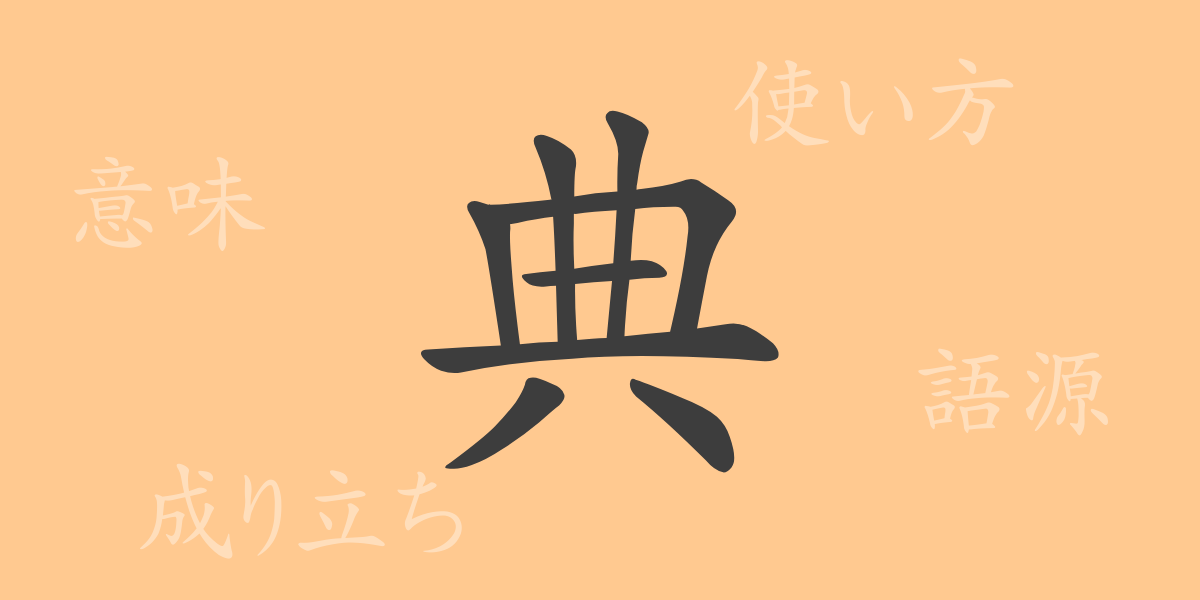In the context of Japanese culture and language, kanji characters are known for their depth of meaning and beauty. The kanji ‘典(テン)’ is especially prevalent in contexts related to laws, norms, and traditions. This article explores the origins, meanings, and uses of ‘典’, along with common idioms and proverbs associated with it, delving into the full scope of this character.
Origins of ‘典(テン)’
The kanji ‘典’ originated in ancient China, initially representing the act of firmly grasping something in hand as a pictogram. Over time, as it came to symbolize the administration and management of items, its meaning evolved to denote laws and norms. This transition reflects how societal order and legal systems influenced the character to embody more abstract concepts.
Meanings and Usage of ‘典(テン)’
‘典’ is commonly used in terms such as ‘法典(ほうてん)’, ‘典型(てんけい)’, and ‘典礼(てんれい)’, which relate to laws, norms, archetypes, and ceremonies respectively. It is also used to denote culture and tradition; for instance, ‘日本の典’ refers to the traditions and culture of Japan. The character functions primarily as a noun or an adjectival verb, applicable when something serves as a standard or model.
Readings, Stroke Count, and Radical of ‘典(テン)’
The kanji ‘典’ has several readings and fundamental characteristics:
- Readings: On’yomi is ‘テン’; there are no specific Kun’yomi readings.
- Stroke Count: A total of 8 strokes.
- Radical: The radical is ‘八’, also referred to as ‘はちがしら’.
Idioms, Phrases, and Proverbs Using ‘典(テン)’
There are numerous idioms and phrases involving ‘典’:
- 法典(ほうてん) – A system of laws.
- 典型(てんけい) – A typical example within a category.
- 典範(てんぱん) – A standard or model that should be emulated.
- 典礼(てんれい) – A format or style of religious ceremony or service.
- 国典(こくてん) – Fundamental laws of a nation.
These terms are deeply rooted in the Japanese language and culture, utilized across various contexts.
Conclusion on ‘典(テン)’
The kanji ‘典’ embodies significant concepts such as law, norms, and traditions through its evolution and meanings. It finds widespread use across various expressions and idioms, reflecting its versatility. Engaging with words and phrases containing ‘典’ enhances understanding of Japanese culture and language, offering insights into the historical and philosophical contexts behind them. This single character provides a window into the values and worldviews of the Japanese people.

























